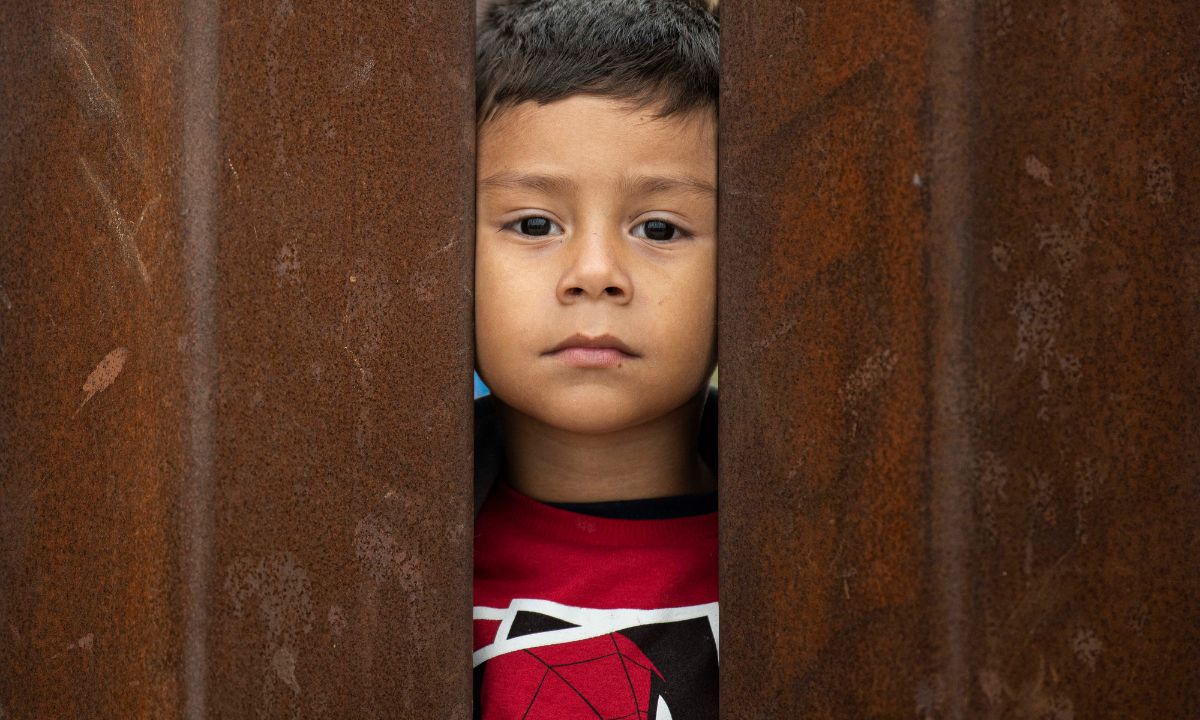Denying Education to Immigrant Children is Morally Wrong — and Practically Dumb
A hard-right push to bar the children of undocumented parents from school is not only cruel and legally unsound, it’s bad for U.S. interests.

Help fund stories like this.
Updated
These are tough times for parents and caregivers. To raise a child in 2024 is to live with a heightened awareness of school’s social, , and academic value to children’s short- and long-term well-being. As the United States continues to wrestle with the aftermath of pandemic-wrecked school years, as we struggle to respond with something resembling a coherent agenda for , the least we should all be able to agree on is that every child does better when in school. Right?
Wrong. The conservative Heritage Foundation, which has been mapping out its playbook for a potential second Trump administration, recently released for overturning , the 1982 Supreme Court ruling that prohibited children from being denied access to education based on their families’ immigration status. The think tank’s stance furthers the aims of Texas Republican Gov. Greg Abbott and a growing of right-wing activists eager to yet another front in American political discourse, this time to block some children from U.S. public schools.
Why? It’s simple: these hardliners want to bar kids from access to learning simply for the decisions of their parents, who emigrated to the U.S. and have not yet established their immigration status in the country.
This conservative crusade was and the 2024 race has seen the three-time presidential candidate up the ante on around immigrants. Dehumanizing immigrants might make it easier for some to deny education to their children, but doing so would be legally unsound, morally wrong and practically impotent.
The court’s in Plyler was straightforward: 1) the Constitution’s 14th Amendment prohibits states from denying “to any person within its jurisdiction the equal protection of the laws,” and 2) undocumented children who live under a U.S. state’s jurisdiction are people who would be unduly harmed if singled out for exclusion from public education. This principle — laws apply equally to all — is an American value equal parts foundational and aspirational. By literally disregarding these children’s personhood and denying their equal access to schools, conservatives are mounting an assault on American legal traditions and the core of our democracy.
It’s no surprise, then, that their is a trainwreck of moral reasoning. In essence, it frames access to public schools as a conditional good — as something that must be earned through right conduct. That is, kids whose families may not have documentation to be in the U.S. have not “earned” access to U.S. public goods, including schools. For instance, Abbott has that it is too expensive to treat these young children as people deserving of an education, that the condition for their participation must somehow be related to their families’ abilities to pay taxes into Texas’s state coffers.
Similarly, the Heritage Foundation is urging states to require public schools and children with undocumented parents tuition to enroll as a way to draw a lawsuit that would bring Plyler back before the high court.
Conservatives at the national level have made closely related arguments amid recent increases in immigrants arriving at the southern border. Representative Elise Stefanik (R-NY) and conservative colleagues costs associated with welcoming immigrants to New York with cuts to the state’s education budget.
But this framing misrepresents immigration’s actual relationship to the economy — and tax revenue. In February, a U.S. Department of Health and Human Services study that, from 2005 to 2019, refugees and asylum seekers contributed nearly $124 billion more to public revenues than they used in public services. The future is also sunny. that recent boosts in immigration are likely to raise U.S. GDP by $7 trillion — and public revenues by $1 trillion over the next decade.
This conservative framing could also have some discomforting implications for native-born Americans. The moment we begin () metering access to public education according to tax contributions or parental wealth, we’ll soon have to face some uncomfortable questions. Do we exclude U.S.-born children from classrooms if their caregivers are renters who don’t directly pay ? Can they be blocked from attending school if their caregiver gets busted for ?
Remember: this isn’t about consequences for adults. Perhaps you think we should require adults to have a job before we provide them with public subsidies to reduce their child care costs. Maybe you think that we should require adults to submit to drug tests before we let them access public food and nutrition programs. In these cases, there’s a vaguely coherent, though hard-hearted, moral case to be debated.
But children are fundamentally blameless when it comes to questions of their families’ legal documentation for U.S. residency. To treat them otherwise is simply heinous and inhumane — contradictory to almost any serious or tradition. Kids shouldn’t need to earn access to food, shelter, opportunities to learn, health care and the like. They’re children; they don’t need to earn the basic pieces of human dignity.
Indeed, this was evident when Plyler was decided — 40 years ago. Writing for the majority, Justice William J. Brennan put it this way: banning these children from school would “[impose] a lifetime hardship on a discrete class of children not accountable for their disabling status. These children can neither affect their parents’ conduct nor their own undocumented status.”
On a practical level, conservatives’ attacks on children of immigrants are equal parts ineffective and myopic. What, precisely, do they hope to achieve by banning undocumented children from public schools? That this castigation will deter immigrant parents and caregivers from coming to the United States?
The path to living and working without established immigration status in the U.S. is already perilous. New arrivals already run massive risks; at the April 2 Baltimore bridge collapse being a heartbreaking example. The country has designed a raft of cruel to make their lives . There’s no serious reason to assume that banning their children from school would raise the punitive threshold to a level that would change these adults’ behavior. Immigrants to the U.S. often come fleeing violence and/or persecution far worse than these artificial deterrents.
What’s more, it’s profoundly shortsighted for any country to treat children’s development and potential as disposable resources. U.S. birth rates have been falling for some time. Demographers like Dowell Myers, of the University of Southern California, have long warned that this presents for our economic future. to fill available jobs also means to support Medicare and the Social Security system (along with other public programs).
Moreover, new research shows that the presence of immigrant students can benefit U.S.-born peers in the classroom. A found that, in most cases, greater exposure to immigrant peers correlated with better math and reading scores among U.S.-born students. In 2021, researchers , affirming that increasing a student’s immigrant exposure was correlated with bumps in reading and math scores. It also revealed that, on average, immigrant students have fewer serious disciplinary incidents than their U.S.-born peers, which might have a beneficial effect on their classmates’ behavior and academic outcomes.
The United States’s ability to immigrant families has long been a strength . Policies that make it harder for us to support and develop the skills of young immigrant children undermine that core competitive advantage.
Plyler has advanced progress and equity, changing our schools — and our communities — for the better. Surely the American legal system will make quick work of such a monumentally immoral and substantively ineffective idea, particularly since it runs counter to demonstrated community benefits and long-standing legal precedent.
And yet, conservatives spent years engineering an activist Supreme Court majority willing to put such considerations to the side when there are right-wing cultural and political victories to be had on , , and more. We must not let them invent an inhumane rationale for disregarding a child’s right to education.
Help fund stories like this.
;)

